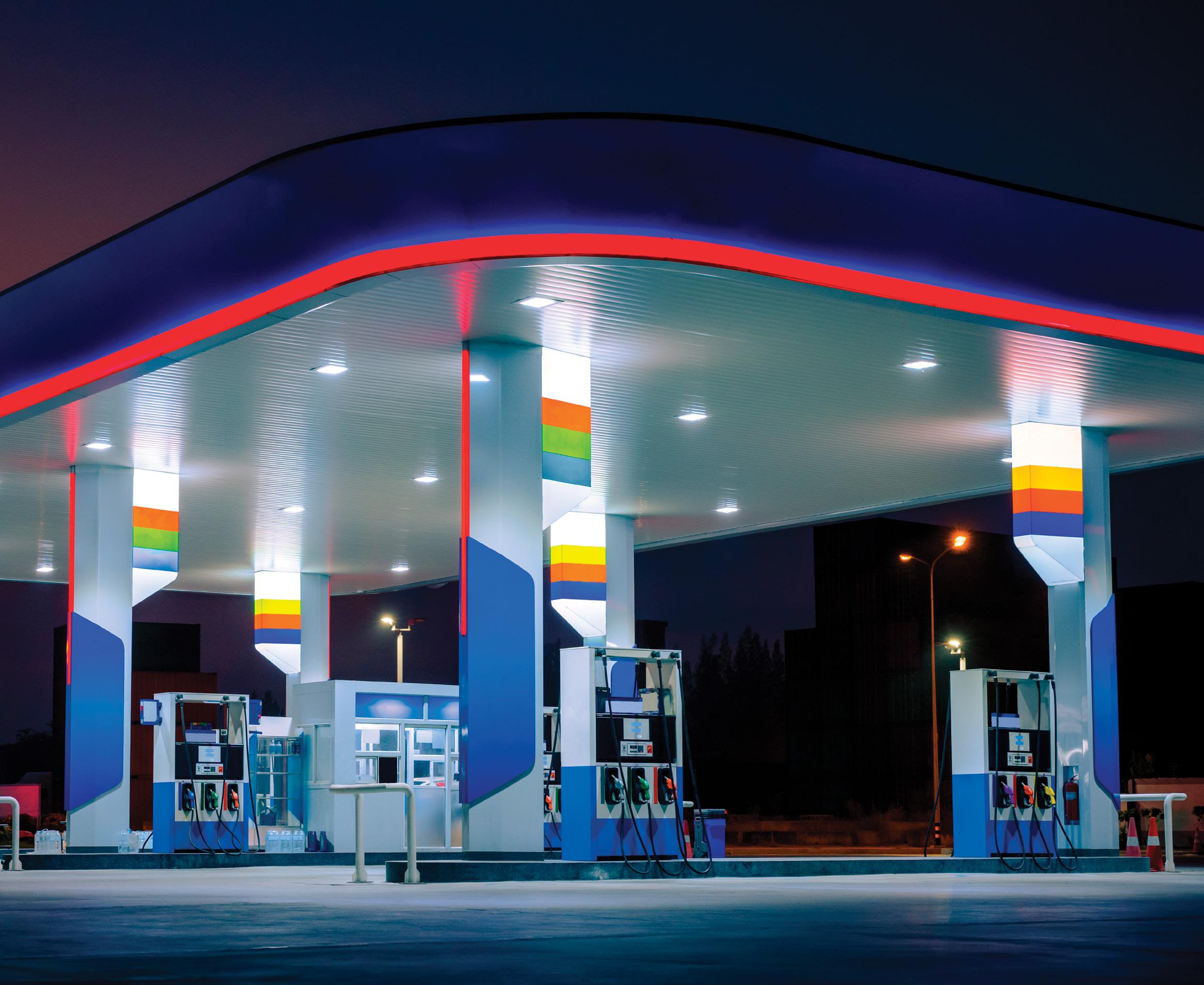
4 minute read
The Sophistication of Wetstock Management
Forecourt Analytics
BY BRIAN REYNOLDS
There are some strange happenings out on the forecourt and some nagging issues that require more than traditional ways of doing business. Some involve acts of nature. Others involve acts of human nature. Wetstock management solutions, typically involving tank gauges and sophisticated tank monitoring software, can analyze fuel products and tank activities on a real-time basis and can provide an explanation for strange events—and actionable recourses for not-so-strange (but no less critical) events.
Let’s look at a few of these.
Earthquakes
First, a look at nature intruding on retail fueling operations.
On July 8, 2021, a 6.0 magnitude earthquake was felt along Antelope Valley, 20 miles southwest of Smith Valley, Nevada. The quake was detected as far away as San Francisco and Carson City, Nevada. It also caused tank probes to bobble due to tank slosh. Wetstock technology recorded the entire event. Aftershocks were also detected.
Generally, wetstock tank charting capabilities are designed to continuously time stamp and record fuel tank inventory for purposes such as leaks, theft, sales and deliveries. Now, a new feature can be added to the wetstock repertoire of events that can be monitored for in real time—seismology! A wetstock management system recorded the quake from start to finish. The United States Geological Survey with its remote sensors has nothing on fuel operators with wetstock management. We have gas stations on every block in town with tanks full of fuel and probes in them.
Next, let’s explore the more adventurous events.
High Noon Fuel Theft
Humans have many good traits, but greed is not one of them.
As crazy as it sounds, emboldened thieves are no longer restricted to operating in the dark shadows of the night when it comes to stealing fuel. In fact, stealing in broad daylight at a busy gas station works to the thieves’ advantage when taking high volumes of fuel.
This is accomplished by either hacking into the dispenser and appearing to be making a normal gas transaction or by parking a van directly above a UST, opening a removable floor and vacuum pumping directly into a container. Daylight and a busy location seem to offer a stealthy security blanket for the bandits.
The most organized theft that I have heard of to date is where a typical-appearing service truck and masquerading service technician seem to be calibrating dispenser meters. This caper is complete with orange cones and a safety vest. The crook commences to steal volumes of fuel. As with any business enterprise, legitimate or not, a solid ROI dictates the risk vs. reward merits of the endeavor. As prices hover around the $5 per gallon mark for diesel, and given the ease with which it can be redistributed, such as passing it off as heating oil, fuel theft is an extremely attractive business model.
It’s difficult to report what the average amount of fuel stolen per event is, but frequently the number is over 500 gallons. Diesel weighs approximately 7 pounds per gallon, so 500 gallons x 7 pounds = 3,500 pounds.
That much fuel (or more) is going to require a big truck. Using wetstock detection methods and correlating them with video surveillance shows that the caper appears to often include more than one vehicle.
Clearly the fuel thieves are operating with a high level of knowledge regarding fueling systems, both the dispensers and the automatic tank gauge (ATG). One of the reasons why busy gas stations are hit is because the ATG doesn’t recognize a rapid loss, as the volume stolen is commingled with the volume sold and the system simply doesn’t recognize the loss. A full, sophisticated wetstock management solution can spot such discrepancies and minimize fuel loss.
THE REGULATOR IS COMING AND WE’RE MISSING REPORTS

Another issue with human nature is wanting to be efficient … but losing control and quality of life in the process.
For a fuel retailer, nothing ruins your day like missing compliance reports when the regulator is coming to see you. The more locations an operator has, the more reports he or she must keep up with. In today’s world the term “keeping your head in the clouds” no longer means staying out of touch. In fact, keeping records in a location that can be retrieved quickly from anywhere, such as the “cloud,” is a good thing.
A computer maintenance management system (CMMS) is how successful retailers manage their entire operations, and the forecourt is no exception. A CMMS offers cloudbased document retention along with work-order management.
In today’s world the highly specialized skilled-labor workforce is being asked to do more work with less help. Using a CMMS is a great way to regain efficiencies and provide quality of life by automating as many things as possible. Regulators are unforgiving of inefficiency and are rumored to be stepping up enforcement to increase state revenues.
True CMMS systems also allow the mechanism for environmental compliance vendors to become willing accomplices for assisting in populating databases, and their ability to do so correctly is something that can be monitored automatically as well. Here are some of the features that a forecourt CMMS can provide:

• A secure and organized system for pass or fail of tank systems in a location that can be accessed from any Internet-enabled device
• At-a-glance document audit for purposes of knowing if any compliance inspection testing reports are missing
• ATG compliance
• SIR compliance and inventory control
• Annual compliance testing, inspections and interstitial monitoring
• Monthly visual walk-through reports
• Asset management at a glance with details such as warranties and how expenses are being monitored to avoid duplication of effort on maintenance
• Integration and tracking of work orders by allowing vendors access to a mobile app
• Limited-visibility access to regulators, which in many instances satisfies their curiosity without them needing to come to your locations Wetstock management solutions, all the way through CMMS integration, have a range of exceptional capabilities, including some they were never designed to provide—like tracking natural events. However, where human nature is concerned regarding day-today operations, these solutions provide a ROI not just in financial terms but in peace of mind as well.
July 16-21, 2023
The Wharton School
University of Pennsylvania
Endowed by:
July 23-28, 2023
Kellogg School of Management
Northwestern University
Endowed by:
July 30-August 3, 2023
The Dyson School
Cornell University
Endowed by:
November 5-10, 2023
MIT Sloan School of Management

Massachusetts Institute of Technology
Supported by:
November 12-17, 2023
Yale School of Management
Yale University
Endowed by:
Kaylie Long Scoles Marketing Director RDM Industrial Electronics Inc. www.rdm.net









